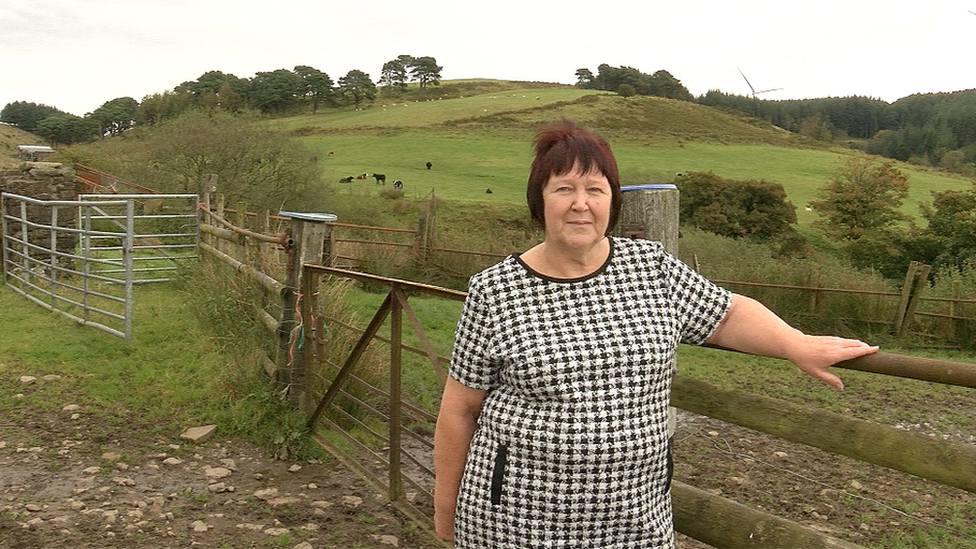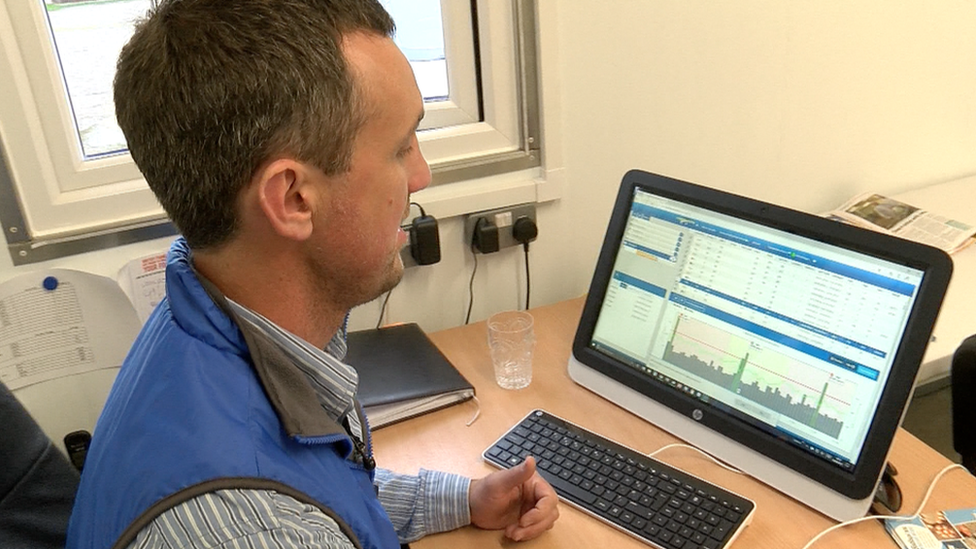Mobile phone masts 'should be condition for land subsidy'
- Published
- comments
Russell George: Broadband "is now an essential service - it's no longer a luxury"
Landowners should agree to have mobile phone masts on their land if they want to receive government subsidies as a way to tackle gaps in broadband coverage, a report has said.
The economy, infrastructure and skills committee wants the Welsh Government to consider innovative ways to get the 4% of Wales which lacks cover connected.
It also mooted reforming the planning regime to improve mobile phone service.
The Welsh Government said it welcomed the report and would respond.
Committee chair Russell George called connectivity "an essential service".
A recent study by a communications expert found mobile phone connection in parts of Wales were worse than on the Scottish Hebrides islands.
Mobile UK, which represents mobile phone operators said in England 25m tall masts could already be built without full detailed planning permission, whereas in Wales 15m was the limit unless full planning was approved.
The committee took evidence from frustrated businesses and individuals who felt they had been left behind, despite millions in public money being spent to encourage the rollout of fast broadband across Wales.
It said while the Welsh Government's Superfast Cymru scheme, delivered by BT, had connected 96% of premises in Wales there were still thousands of people unable to get access, left disappointed by delays and shifting timescales.

A TALE OF TWO FARMS

Lorraine Miles lives on a farm in Tonmawr near Neath.
BT said she was too far away from their telephone exchange and even a Welsh Government scheme which subsidised the installation of wireless technology for broadband in a nearby village could not help.
"Despite protracted efforts they (the engineers) gave up in the end and said it was too difficult.
"We use our mobile phones but the reception is really patchy and unreliable…for government forms or VAT things for example, we have to drive to my daughter's house which is two miles away.
"I understand the business decisions that perhaps it's not commercially viable, but we do have a mast just across the way which is for the Pen-y-Cymmoedd wind farm and I'm just wondering what other solutions could be possible."

Lawrence Hembraw runs Mead Farm near Redwick in Monmouthshire, which has had access to fast broadband for several years.
His cows are tagged with GPS collars, feeding information to his computer and an app on his phone while milk orders and official documents are all online.
But they recently had a taste of what life was like without broadband, when a piece of equipment broke.
"A weekend without the internet was quite tricky - you're still observing the cows, but on the business where we're selling the milk it's all online and if we can't get online we can't see the orders," he said.
"Obviously they're be some substantial changes if we didn't have the broadband.
"The business that we've got, we quite like having a bit of heritage in it - milk being delivered is quite an older thing, but there's a bit of a new twist with people having things delivered to them via the internet."

Russell George said: "What we would like to see as a committee is when the Welsh Government brings forward its next scheme, we want to see communications built in as part of the contract, so the provider has to keep communicating with the public and if they don't do that in a timely way they don't get paid.
"We understand that the topography of Wales and the low population in some areas is a real issue, but what people expect in the 21st century is good reliable access to broadband.
"It's an essential part of everyday living, an essential service just like water or electricity.
"There's a lot the government can do - to start with it can change the planning regime. We've seen planning policy change in England and in Scotland but the Welsh Government hasn't updated it's planning policy in this regard in many years."
Some of the report's other 15 recommendations include:
The Welsh Government should consider establishing a repayable grant or equity scheme to enable small operators to fill in gaps in the network with both home and business customers
The 4% still waiting for fast broadband should have a say in what solution would work for them and that any infrastructure should be suitable in the longer term as internet speeds rise elsewhere
Consider offering non-domestic rates relief for new masts in non-commercial areas and ask local authorities and other publicly owned sites to give access for operators to install equipment to improve coverage
Regulator OFCOM should use all it's regulatory power to ensure 100 per cent geographical coverage when handing out future licenses for mobile operators.
- Published14 September 2017

- Published12 January 2017

- Published12 January 2017
